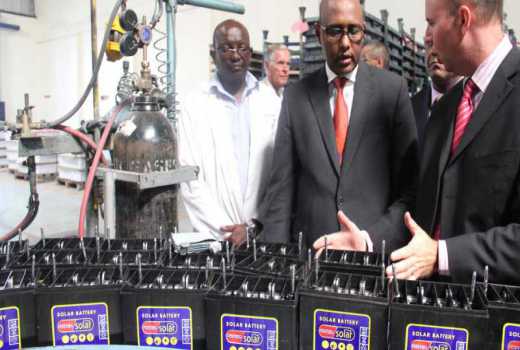×
The Standard e-Paper
Kenya’s Boldest Voice

The Kenyan battery manufacturing sector is facing a crisis due to lack of raw materials as a result of smuggling of lead into Uganda.
Industry players blame officials from the Ministry of Industrialisation for failing to act, even as the illegal business continues to thrive across the border.